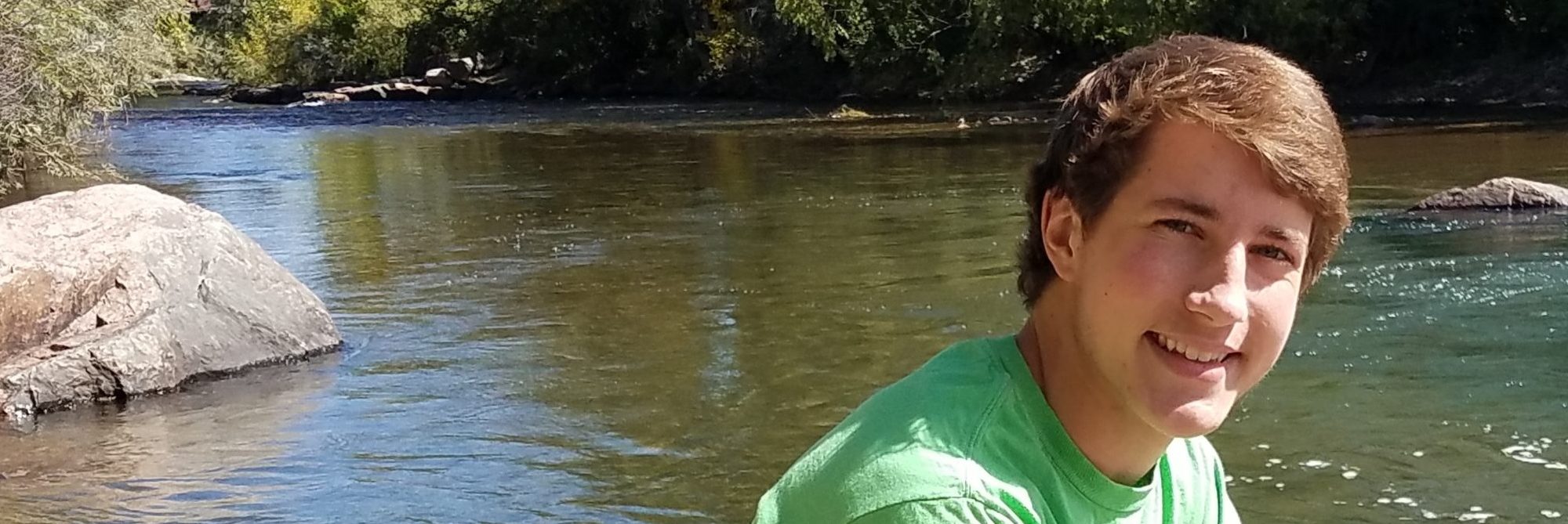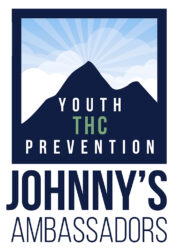As you’ve likely read, the U.S. Drug Enforcement Administration (DEA) will move to reclassify marijuana from the “Schedule I” group to the less tightly regulated “Schedule III.” The proposal must still be reviewed by the White House Office of Management and Budget and receive public comments. This move would not legalize state markets or recreational use of the drug.
Schedule 1 are “drugs with no currently accepted medical use and a high potential for abuse.” Schedule 3 are “drugs with a moderate to low potential for physical and psychological dependence” and have accepted medical use. Keep in mind the FDA has not approved one single medical condition for the use of dispensary weed. Marijuana and THC products have never been more potent and dangerous than they are today.
Johnny’s Ambassadors Youth THC Prevention is dismayed by this reckless recommendation and is concerned about its negative implications for our youth. Yes, marijuana would still be an illegal, controlled substance, but this move further reduces the perception of harm among youth. The result will be measured in lives lost to addiction, mental illness, psychosis, and suicide. Just ask any one of the 1,400+ members of our Parents of Children with Cannabis-Induced Psychosis (POCCIP) group.
Johnny’s Ambassadors asked our Scientific Advisory Board, partners, and fellow National Marijuana Initiative Speakers Bureau speakers to comment on this proposal. Here are their thoughts:
Dr. Kevin Sabet CEO of Smart Approaches to Marijuana and Drug Policy Alliance said, “The biggest win would be for the industry: Schedule III drug advertisement can be written off on taxes as a business expense. This means we will continue to see disadvantaged communities targeted by the marijuana industry, but now they will become even more vulnerable to marijuana advertising. Marijuana-induced mental health disorders will continue, and our children will be exposed to more marijuana imagery. The rescheduling of marijuana will cause communities to suffer while big marijuana makes more profit for itself and its supporters.”
Jo McGuire, executive director of National Drug & Alcohol Screening Association, said, “This is the worst-case scenario: HHS interprets Schedule 3 as “not a regular drug of abuse” and removes it from the testing panel, which would prohibit the U.S. DOT (Dept of Transportation) from testing pilots, school bus drivers, motor carriers, train personnel, pipeline, Coast Guard operators, etc.”
Dr. Karen Randall, emergency department physician, said, “What it would mean to me is that more young adults and adolescents will begin their “addiction” journey – and in most of the US, without adequate services for mental health and recovery. If they want to make it a schedule 3 drug, it should pass the testing, research, and development protocols that other FDA approved, schedule 3 drugs have gone through. Additionally, cannabis should be subject to the purity and safety standards required of other “medications.” And finally, as with drugs on the market currently, side effect profiles such as cannabis hyperemesis, acute and recurrent psychosis, associate cardiovascular and cancer side effects, etc., should all be reported and included in a registry. And should the side effect profile be found too risky, too harmful, too problematic, like other drugs, the “medication” should be pulled from the market. Until cannabis undergoes rigorous evaluations and trials for FDA approval (like all current medications) and is approved by the FDA (to be a safe product), it should be pulled from the market.”
Dr Crystal Collier, Psychotherapist, said, “Rescheduling cannabis in its current unregulated, high-potency state would mean attracting more investors and entrepreneurs resulting in more highly addictive, dangerous cannabis product availability. Highlighting the research benefits of rescheduling is a clever marketing ploy. An enticing Trojan horse, hiding cannabis industry tax benefits, reduced federal liability, and lighter criminal penalties. Decreasing public perception of cannabis harms is the wrong way to go. We have over 60 years of solid research regarding the pros and cons of cannabis but not much on high-potency THC products. I would rather see our government ease research restrictions enabling scientists’ due diligence opportunities before rescheduling and releasing deadlier versions of the once relatively mild psychoactive substance.”
Dr. Aaron Weiner, Psychologist, said, “My personal opinion is that “marijuana” is not a fit for Schedule 3 because: (1) It’s not a consistent product that you can categorically claim has an accepted medical use; (2) Unlike all other Schedule 3 drugs it’s not FDA-approved for any condition (as opposed to dronabinol, which is a medication, FDA-approved, and already is Schedule 3); (3) It does have significant physiological addictive potential, particularly when compared to other Schedule 3 medications; and (4) Its risk profile seems higher to me than other Schedule 3 drugs.”
Dr. Kenn Finn, doctor of pain management, said, “There would be many more questions. Will pot need to come through a pharmacy window if now put into medication classification? Who will be held accountable for contamination and consumer poisonings? Will DEA/FDA have to be more involved? Will it be easier for providers to be sued? Can they no longer hide behind state laws? I agree that by doing this, it may set the industry up for failure and be brought under the Feds (DEA/FDA), who will now be required to provide oversight.”
Dr. Libby Stuyt, addiction psychiatrist, said, “To me – this is so much a political move – to try and sway voters. This is absolutely not about science. And I do not think it will really go anywhere because they will have to deal with high THC products – maybe they will come up with a potency cap?”
Dr. Roneet Lev, emergency department physician, said, “This is a political rather than a scientific move. DEA is being pushed to do this against better judgement. The HHS paper recommending this schedule change quotes articles based on old marijuana, not high potency. They do not account for the extensive side effects.”
Dr. Eric A. Voth, pharmacist, said, “Fortunately, rescheduling is not the end of the earth. I’ve been thinking about this for a long time, and it may very well be that with it falling under another schedule that tighter controls could be potentially exerted. Also, if it is considered as a “medication,“ then the question of standards of care and malpractice apply, since recommendations are not adequate. Additionally, schedule three medications certainly require a formal prescription process rather than simply a recommendation. There is a lot that could be exerted to bring about controls in that regard. Personally, I think it’s a move to appease the pot crowd.”
Jeffrey Stamm, author of On Dope, said, “Marijuana is categorized under Schedule I of the CSA not because it is equal in every respect to the dangers associated with other schedule I drugs, such as heroin, MDMA, or mescaline, but because it meets the specific classification guidelines that: (1) it has a high potential for abuse; (2) it has no accepted medicinal value; and (3) there is evidence of a general lack of accepted safety for its use even under medical supervision. Not only does the clear weight of the evidence demonstrate that smoked marijuana is harmful but, in addition, every legitimate scientific and medical entity “openly discounts the notion that smoked marijuana is or can become ‘medicine.’” U.S. Drug Enforcement Administration, “The DEA Position on Marijuana,” April 2013, 5 Any other claim made by the legalization lobby is deceitful in its intent and purposefully undermining by its design. Their determined aim is to hoodwink an entire nation, and they have been startlingly successful at it.”
Johnny’s Ambassadors will continue to post opportunities for you to weigh in when the public opinion link is opened.


There is no such thing as “recreational marijuana”. The proper term is “adult use”. Big Marijuana wants to keep sending a mixed message to our teens and young adults that smoking marijuana is a leisure time activity that is safe and harmless. They insist on using recreational terminology to soften the impact of their advertising. Like the alcohol and tobacco industry using the term “use our products responsibly” knowing the statistics that 10-20% of the population will become addicted to one or more of their products. Smoking marijuana and using cannabis products is not for “recreational” purposes. Do we have “recreational” alcohol? “Recreational heroin”? Please, drop the word from all future articles!
Thank you Romeo, You are so right. No such thing as “recreational” pot. I call it just-to-get-high marijuana or pot. We could also call it “wreck-marijuana”. We should also avoid using the term “dispensary” or “dispensary marijuana”. We suggest “pot shop” marijuana or marijuana drug dealer.